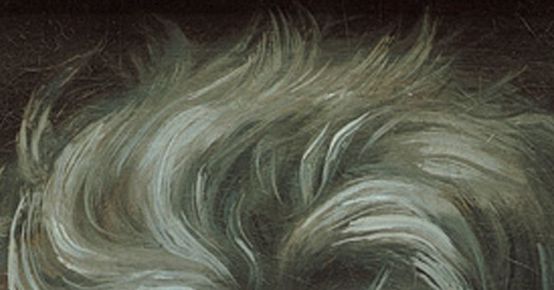Rondo a capriccio "Anger for a lost penny
Every Friday, Beethoven is here. To mark the 250th anniversary of Beethoven's birth, each week the Swiss Music Review takes a look at a different work from his catalog. Today for the Rondo a capriccio for piano in G major "Anger over a lost penny".

Shopping lists already existed hundreds of years ago. They belong, however, to a type of text that loses its raison d'être after a very short time. The piece of paper is then crumpled, torn or simply thrown away. In the past, it was best used for lighting fires; today, it is the subject of cultural-historical research. Beethoven also used shopping lists. In 2011, one of these was sold at auction for 74,000 euros. The amount that the housekeeper for whom it was intended had to spend was certainly much less than that: the list mentioned a mouse trap, firelighters, soap and three beard knives. There was also a note: "to the watchmaker for your metronome".
Beethoven would have been astonished by this amount. But perhaps he would have bet on the auction himself, for unlike many other composers and musicians, he knew how to manage his money. At least, he earned a very decent living. As early as 1809, he was granted a pension; he never sold his own works for less than they were worth; dedications to high-ranking aristocratic personalities were usually financially rewarded. It seems, however, that Beethoven never had a proper overview of his fortune. In any case, he was modern, willing to take risks and well advised by his friend Franz Oliva when, on July 13, 1819, he acquired shares worth almost 10,000 florins of Viennese currency - the equivalent of around 86,000 Swiss francs - from the "Privileged Austrian National Bank", which had just been created after the war. By the standards of the time, especially for a composer, this was a considerable fortune, which would later enable his nephew Karl and his children to support themselves. That Beethoven relied on the dividends paid to him twice a year is documented in a February 8, 1823 letter to chief accountant Franz Salzmann: "I beg you, as regards my dear dividend, to see that I can receive it today or tomorrow, as our person always needs money, and all the scores I write don't get me out of trouble!!!"
It's reassuring to learn that the title of one of Beethoven's most famous piano pieces, "Anger over the lost penny discharged in a caprice", was probably proposed by Anton Schindler. It already appears in an explanatory note to the first edition, published posthumously in 1828 - although Beethoven had simply titled this rondo, written around 1794-95, Alla ingharese quasi un Capriccio. In any case, the most important thing about this movement is its musical humor. When Robert Schumann got his hands on this score in 1835, he happily wrote in the Neue Zeitschrift für Musik "There couldn't be anything funnier than this farce, I laughed out loud when I played it for the first time just recently."
Aufnahme auf idagio
Keeping in touch
A weekly newsletter reveals the latest column on line. You can subscribe by entering your e-mail address below, or by subscribing to our RSS feed.








